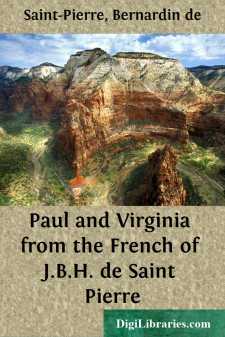Categories
- Antiques & Collectibles 13
- Architecture 36
- Art 48
- Bibles 22
- Biography & Autobiography 816
- Body, Mind & Spirit 145
- Business & Economics 28
- Children's Books 18
- Children's Fiction 14
- Computers 4
- Cooking 94
- Crafts & Hobbies 4
- Drama 346
- Education 58
- Family & Relationships 59
- Fiction 11831
- Foreign Language Study 3
- Games 19
- Gardening 17
- Health & Fitness 34
- History 1378
- House & Home 1
- Humor 147
- Juvenile Fiction 1873
- Juvenile Nonfiction 202
- Language Arts & Disciplines 89
- Law 16
- Literary Collections 686
- Literary Criticism 179
- Mathematics 13
- Medical 41
- Music 40
- Nature 179
- Non-Classifiable 1768
- Performing Arts 7
- Periodicals 1453
- Philosophy 66
- Photography 2
- Poetry 897
- Political Science 203
- Psychology 45
- Reference 154
- Religion 516
- Science 126
- Self-Help 86
- Social Science 82
- Sports & Recreation 34
- Study Aids 3
- Technology & Engineering 59
- Transportation 23
- Travel 463
- True Crime 29
Our website is made possible by displaying online advertisements to our visitors.
Please consider supporting us by disabling your ad blocker.
Paul and Virginia
Description:
Excerpt
MEMOIR OF BERNARDIN DE ST. PIERRE
Love of Nature, that strong feeling of enthusiasm which leads to profound admiration of the whole works of creation, belongs, it may be presumed, to a certain peculiarity of organization, and has, no doubt, existed in different individuals from the beginning of the world. The old poets and philosophers, romance writers, and troubadours, had all looked upon Nature with observing and admiring eyes. They have most of them given incidentally charming pictures of spring, of the setting sun, of particular spots, and of favourite flowers.
There are few writers of note, of any country, or of any age, from whom quotations might not be made in proof of the love with which they regarded Nature. And this remark applies as much to religious and philosophic writers as to poets,—equally to Plato, St. Francois de Sales, Bacon, and Fenelon, as to Shakespeare, Racine, Calderon, or Burns; for from no really philosophic or religious doctrine can the love of the works of Nature be excluded.
But before the days of Jean Jacques Rousseau, Buffon, and Bernardin de St. Pierre, this love of Nature had not been expressed in all its intensity. Until their day, it had not been written on exclusively. The lovers of Nature were not, till then, as they may perhaps since be considered, a sect apart. Though perfectly sincere in all the adorations they offered, they were less entirely, and certainly less diligently and constantly, her adorers.
It is the great praise of Bernardin de St. Pierre, that coming immediately after Rousseau and Buffon, and being one of the most proficient writers of the same school, he was in no degree their imitator, but perfectly original and new. He intuitively perceived the immensity of the subject he intended to explore, and has told us that no day of his life passed without his collecting some valuable materials for his writings. In the divine works of Nature, he diligently sought to discover her laws. It was his early intention not to begin to write until he had ceased to observe; but he found observation endless, and that he was "like a child who with a shell digs a hole in the sand to receive the waters of the ocean." He elsewhere humbly says, that not only the general history of Nature, but even that of the smallest plant, was far beyond his ability. Before, however, speaking further of him as an author, it will be necessary to recapitulate the chief events of his life.
HENRI-JACQUES BERNARDIN DE ST. PIERRE, was born at Havre in 1737. He always considered himself descended from that Eustache de St. Pierre, who is said by Froissart, (and I believe by Froissart only), to have so generously offered himself as a victim to appease the wrath of Edward the Third against Calais. He, with his companions in virtue, it is also said, was saved by the intercession of Queen Philippa. In one of his smaller works, Bernardin asserts this descent, and it was certainly one of which he might be proud. Many anecdotes are related of his childhood, indicative of the youthful author,—of his strong love of Nature, and his humanity to animals....



